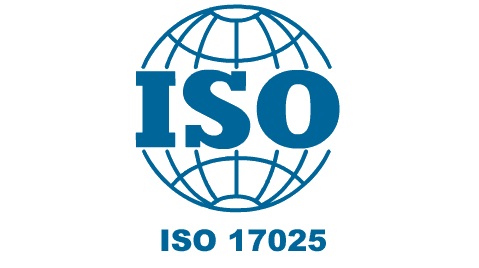In today’s competitive industrial and research environment, laboratories are under constant pressure to deliver accurate, reliable, and internationally recognized results. ISO 17025 compliance has become the benchmark for laboratory competence, ensuring that testing and calibration processes meet global standards. To achieve this, laboratories are turning to digital solutions such as Laboratory Information Management Systems or LIMS. In Indonesia, the adoption of LIMS software is also part of a larger digitalisasi laboratorium trend that helps laboratories streamline operations and enhance credibility.
Understanding ISO 17025 Compliance
ISO IEC 17025 is the international standard that defines the general requirements for the competence of testing and calibration laboratories. Laboratories that are accredited to ISO 17025 can prove that their data is valid, traceable, and reliable. Compliance involves two critical aspects: the implementation of a robust quality management system and the fulfillment of technical requirements such as equipment calibration, personnel competence, and result validation. Achieving ISO 17025 compliance not only builds trust with clients and regulators but also improves efficiency within laboratory operations.
Why LIMS is Essential for ISO 17025 Compliance
LIMS software acts as the backbone of digital laboratory management. It centralizes data collection, reduces manual errors, and provides transparency across the entire testing workflow. For laboratories in Indonesia, implementing LIMS software means embracing digitalisasi laboratorium, which aligns with both regulatory requirements and industry best practices. By integrating LIMS with ISO 17025 compliance strategies, laboratories can ensure consistency, accuracy, and readiness for audits.
Data Integrity and Information Security
One of the most important requirements in ISO 17025 is maintaining the integrity of data. LIMS ensures data integrity by automatically capturing results directly from instruments, recording user activities through audit trails, and applying role based access control. This makes it impossible to alter or delete critical information without proper authorization. For laboratories in Indonesia undergoing digitalisasi laboratorium, LIMS software provides a secure environment that meets international standards.
Traceability and Reliability of Test Results
ISO 17025 compliance emphasizes metrological traceability. LIMS software supports this by linking every result to the specific instrument used, the certified reference material applied, and the analyst who performed the test. Metadata such as calibration dates, certificate numbers, and batch details are stored in the system, making every result fully traceable. This level of traceability is essential for laboratories in sectors such as manufacturing, pharmaceuticals, and environmental testing in Indonesia.
Ensuring Validity of Results with LIMS
Another key component of ISO 17025 compliance is the assurance of result validity. LIMS enhances this by enabling laboratories to perform quality control checks automatically. Control charts, trend analysis, and statistical rules can be integrated into the system to monitor ongoing performance. When data falls outside acceptable limits, LIMS generates automatic alerts, ensuring that corrective actions are taken immediately. This feature is critical for laboratories seeking ISO 17025 accreditation and demonstrates a commitment to continuous improvement.
Reporting and Approval Workflow
Reporting is a vital step in laboratory operations and is closely regulated under ISO 17025. LIMS software simplifies reporting by generating consistent and professional documents in formats such as PDF and Excel. In addition, LIMS supports multi level digital approval workflows, allowing analysts, reviewers, and managers to validate results before they are released. This not only strengthens internal quality control but also ensures compliance with ISO 17025 requirements.
Data Retention and Backup in Digital Laboratories
ISO 17025 requires laboratories to maintain records securely and retain them for future reference. LIMS addresses this need by providing automated backup, secure archiving, and structured data retention policies. In Indonesia, where many laboratories are moving toward digitalisasi laboratorium, this feature ensures that valuable data is protected from loss, corruption, or unauthorized access.
Supporting Personnel Competence with LIMS Software
Personnel competence is a central element in ISO 17025 compliance. Laboratories must ensure that testing is performed by trained and qualified staff. LIMS software can be extended with modules to record personnel qualifications, certifications, and training history. By integrating this information into the system, laboratories can easily demonstrate compliance during audits and improve staff development planning.
LIMS Software Indonesia and the Future of Laboratory Digitalization
The demand for LIMS software in Indonesia is rising as more laboratories aim for ISO 17025 compliance and embrace digital transformation. Digitalisasi laboratorium is no longer an option but a necessity, especially for industries that rely on high quality and traceable results. By implementing LIMS, laboratories not only streamline workflows but also position themselves as reliable partners in global supply chains.
Conclusion
ISO 17025 compliance is a critical requirement for laboratories that want to be recognized for their competence and reliability. Implementing LIMS software is the most effective way to achieve and maintain compliance. For laboratories in Indonesia, adopting LIMS is also a step forward in the journey of digitalisasi laboratorium. With features such as audit trails, traceability, QC checks, reporting, and secure data retention, LIMS enables laboratories to improve efficiency, strengthen credibility, and succeed in a highly competitive environment.

